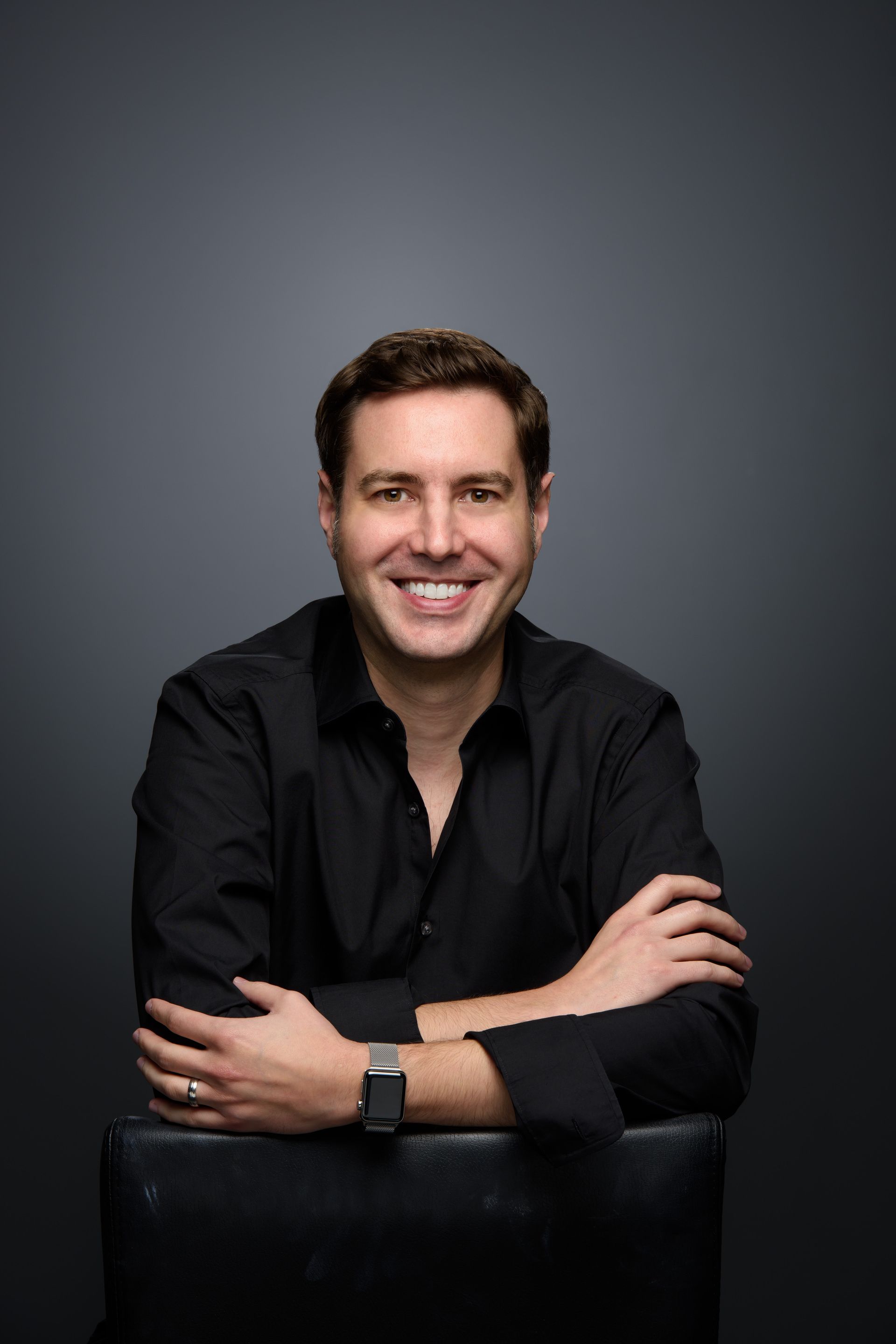- The Moment
- Posts
- The Dr. Chris Cetta Interview!
The Dr. Chris Cetta Interview!
An Interview with Dr. Chris Cetta, Orthodontist and Host of the Illuminate Orthodontic Podcast
Read time: 8 minutes.
At a glance:
Picture
Interview

Dr. Chris Cetta is a board-certified orthodontist practicing at Hess Orthodontics in Sarasota and Parrish, Florida. He hosts The Illuminate Orthodontic Podcast and often speaks on orthodontic innovation and clinical products. Dr. Cetta is the co-inventor of Precision Aligner Buttons® by DynaFlex and serves on the clinical advisory council for The Journal of Clinical Orthodontics as well as the editorial advisory board for Orthotown. His work has appeared in several leading publications. Dr. Cetta resides in sunny St. Petersburg, Florida, with his wife, Nicole, and their dog, Jagger.
Put me in the room if you were to talk to your younger resident self, what’s the first thing you’d say?
“Your career is a marathon, not a sprint.”
When you’re starting out, you’re youthful and have boundless energy, but now that I’m in the middle of my career, I recognize times when I was getting burned out in practice. And many orthodontists will face this issue if they’re not careful.
Also it’s not about your case starts, but your case finishes.
Sometimes we tend to get caught up in our numbers of case starts and production, but the best orthodontists care more about the quality of their work and building long-term relationships with their patients.
What podcast guests from The Illuminate Orthodontic Podcast have changed your mindset the most?
I’ve been fortunate to interview some of the brightest minds in the orthodontic profession. I don’t know if there’s one particular guest that has completely changed the way I practice clinically, but two podcast guests do stand out in terms of mindset.
One guest was Dr. Tito Norris. In his episode, Tito discussed his prioritization of work-life balance and how we has designed his schedule to take ten weeks off per year to spend more time with his family and travel the world.
The other guest was Dr. Jacquee Schieck who spoke extensively about purpose, intentionality and having a clear vision for your future.
I can’t say that I’ve fully achieved a work-life balance, but it’s something I’m striving for and these guests were certainly inspiring in that regard.
What’s the best value for $100 for one to spend at a practice?
A $20 monthly subscription to ChatGPT.
I’ll admit that I’m not on the cutting edge of A.I., but I’m also not a technological laggard. I certainly have misgivings about where artificial intelligence is heading, but you can’t just bury your head in the sand either.
I really believe A.I. will become increasingly important in the orthodontic practice. I currently use ChatGPT for marketing, social media and responding to patient emails or reviews.
But in the not so distant future, I believe we’ll be using A.I. for orthodontic diagnosis and treatment planning. I envision we’ll upload our orthodontic records to some HIPPA-compliant platform, and it will automatically generate treatment plan scenarios and digital case setups for us.
I don’t think this will eliminate the need for orthodontists, but hopefully it will cut down on the time we spend doing digital treatment plans and other forms of digital homework. And that ties back into our discussion of work-life balance.
Assume there’s an industry billboard everyone will see tomorrow – What’s on it?
“Your Smile is a Gift to the World.”
In today’s day and age, we could really use this reminder. I try to have a positive outlook on life, and hopefully my podcast reflects that as well.
What’s a bad recommendation that’s touted by most as a best practice?
It has to do with retention.
Orthodontics is all about relationships, yet it’s becoming increasingly common to do away with retainer checks entirely to save chair time.
When I finished my residency, two to three years of supervised retention was considered the norm, and now many practices do a single retainer check, if at all. I don’t think that’s a best practice for our profession.
Firstly, we need to ensure a stable and great orthodontic outcome, but secondly it continues the relationship with the patient. Now I’m not saying you need to check your patients forever, but with customer acquisition costs becoming higher, this is an easy way to have patients stay connected to your brand and potentially get referrals from their family and friends.
I would suggest at least one year of supervised retention, or consider more if your schedule permits. It’s just the right thing to do for your patients.
What is the hardest thing to convey to your audience on your podcast?
I don’t have a pressing agenda to convey with The Illuminate Orthodontic Podcast; though certainly a prevailing theme is innovation by orthodontists, for orthodontists.
But something that I’m never sure how it’s conveyed is my humor. I’ve been told I have a dry sense of humor, and since you can’t gauge the listeners’ response through a podcast, it’s hard to tell how jokes are going to land.
I really try to keep the podcasts not just educational but entertaining as well!
Say you visit a practice. What must an orthodontist promise you before you leave?
They have to toss all of their alginate and mixing bowls into the garbage.
I’m a big fan of the digital workflow.
There are still many practices that are analog, still taking impressions, rather than using an intraoral scanner. Besides the obvious benefits of digital, it’s all about the patient experience for me. Many patients, when asked how they remember their orthodontist, talk about the goopy impressions.
We, as orthodontists, often become numb to this, but it’s a significant issue. If any practices are still using analog impressions, I’d recommend investing in digital workflows immediately.
What book do you give most often as a gift?
Some of my favorite books are Start with Why, The Four-Hour Workweek, and Good to Great.
However, one book that’s maybe not quite as common is "One Simple Idea" by Stephen Key.
I’ve always been a creative person, but I had no idea of the steps needed to actually commercialize a product. This book was the blueprint to bring the Precision Aligner Buttons to market and lays out the perfect framework for licensing your idea.
What’s true in this industry that doesn’t have the data behind it yet?
It has to do with custom digital braces.
I really see the efficiency of them.
I know there’s some data out there, but there are still many disbelievers and those who dismiss the published studies. They might think custom digital braces are a money grab or an expensive lab fee, but for me, I’m literally seeing not just efficiency but better results.
What’s the problem you want to solve next in orthodontics?
This is something I often think about: What does our profession look like in 10 years?
This intersection of private practice, private equity, and figuring out the best model for patient care is an area I’m passionate about helping to solve.
Bonus - What’s your parting advice for all of us in the industry?
“Stay curious.”
It’s so important in today’s day and age. People have become increasingly dogmatic and set in their ways. People tend not to listen to others. And it’s increasingly important to stay open-minded not just in our field, but in life.
My Take: I reached out to Dr. Chris Cetta after he became one of my go-to podcasts to learn in the industry. He’s driven to help the industry innovate, learn, and simply wants others to succeed with no agenda on how or what to use in practice. He’s also a model on pushing the boundaries of possible: musician, author, doctor, innovator, podcast host, and what I found out in doing this interview: doing it all with intentionality.
To connect with Chris, email him at: [email protected]
